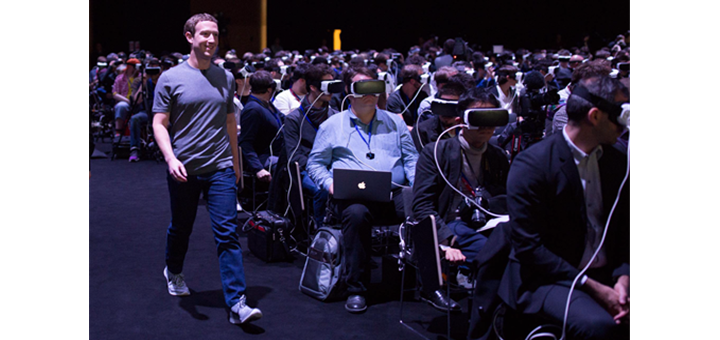Guest Editorial by Ryan Lash (@gotskepticism)
Through revelations from WikiLeaks and basic observations by any individual who regularly uses social media, it has been well documented that Silicon Valley is, for all intents and purposes, an arm of the Clinton campaign. We know that Google adjusted its autocomplete algorithm in favor of Hillary Clinton. We know that heads of Alphabet have advised the Clinton campaign. We know that Facebook and Twitter are censoring trending topics that are anti-Clinton or pro-Trump. We know that Silicon Valley has thrown more money at the Clinton campaign than Anthony Weiner in a whorehouse. Even Elon Musk has supported Hillary as far back as the primaries, which is surprising considering that Sanders’ proposed subsidies for corporations pursuing efforts in renewable energy would have given Tesla an edge in the energy industry and Hillary’s financial ties to the oil, coal, and gas industry. So, rather than beat a dead Foster and reanalyze their actions, I believe it would be far more beneficial to explicate their motivations; specifically, the TPP and the H-1B visa program. While trade and economic policies are far less sexy than the scandals that are currently circulating the media, Hillary’s actions on such matters, should she be elected, could have severe ramification for the economy, job growth, our current governmental system, and the prosperity of the American people.
The Trans-Pacific Partnership
At face value, the TPP appears to simply be a massive free trade agreement involving. twelve Pacific Rim countries (United States, Australia, Canada, Mexico, Japan, New Zealand, Vietnam, Singapore, Peru, Chile, Malaysia, Brunei), which account for roughly 40 percent of the world’s economy, that would allow both foreign and domestic corporations to expand into new markets. But let us not conflate the TPP with free trade deals such as NAFTA. The contents of the TPP are far more sinister.
Little was known about the TPP during its drafting. What little information that was known had been provided through leaks. The American people and even elected representatives were left in the dark when came to the TPP’s contents, while multinational corporations were given full access to information and were at the table during negotiations. Obviously, this was a red flag for those who argued that the TPP was part of a corporatist agenda. The Investor-State Dispute Settlement (IDSD), which the TPP contains, gives validity to that argument. The IDSD establishes tribunals which hear lawsuits brought by corporations against pieces of legislation that cut into projected corporate growth rates and profits, essentially allowing corporations to sue governments. This a significant in that government officials may have to choose between fighting the lawsuits, which could cost taxpayers millions of dollars, or curtailing to corporations by passing legislation that said corporations would support.
In addition to the IDSD, those who are anti-TPP are worried by the TPP’s connections with the Stop Online Piracy Act (SOPA) and the PROTECT IP Act (PIPA). SOPA and PIPA are proposed bills that would impose significant copyright restrictions and give corporations greater ability to legally pursue copyright offenders. This could have serious implications for how the internet functions, as ISPs will be tasked with policing the internet, shutting down any content that they deem as copyright infringement, and pursuing severe legal action against copyright offenders.
Silicon Valley heavily supports the TPP, stating that it world spur innovation, job creation, and economic growth for the the United States, while having their own corporate interests at mind. Hillary has stated that she would not pass the TPP if she were to be elected, but only after calling it the gold standard of trade deals and then flipping her view of the trade deal once Sanders and his supporters came out in opposition of the TPP. But looking at what has been uncovered in WikiLeaks and following the trail of donor money to the Clinton campaign, it is quite obvious that Hillary would support the TPP if she were to be elected. Trump, much like Sanders, has come out in strong opposition to the TPP, believing that the trade deal could be catastrophic to American job growth.
The H-1B Visa Program
There has been a growing number of people who have shown great concern over Hillary’s probable support of the TPP, which caused it to grow into a popular talking point for Sanders in the primaries and now for Trump. What has not been heavily discussed, however, is Hillary’s position on the H-1B visa program.
The H-1B visa program, under the Immigration and Nationality Act, allows U.S. employers to temporarily employ foreign workers in specialty occupations. Many of these foreign workers with H-1B visas are employed by the tech companies of Silicon Valley and for far cheaper than American workers in the same industry. Also, under the H-1B visa program these foreign workers are essentially prevented from switching jobs, as they must reapply for another non-immigration status or leave the country, thus giving them no real leverage to negotiate raises in wages. Many of these foreign workers are passed from tech company to tech company, so that they can stay employed, providing those companies with a continuous supply cheap employees.
They are the indentured servants of Silicon Valley and they have made it nearly impossible for college students pursuing degrees in STEM to realistically compete for jobs in the tech industry. However, those same college students may be digging their own graves, as polls have indicated that Hillary has a significantly more supporters among voters with a college education than Trump. How so? Well, much like with the TPP, Hillary, along with Silicon Valley, is in favor of expanding the H-1B program and Trump is the voice of opposition, as was Sanders.
Many Trump supporters have pointed to free trade deals such as NAFTA and denounced them as attempts at globalization that have robbed Americans of their jobs, but forget that free trade has allowed American industries to expand, creating the high paying jobs that we see in the tech industry today. With an expansion of the H-1B visa program, those jobs will be robbed from Americans. The battle lines for job growth in this country should not be drawn at manufacturing. Manufacturing jobs have disappeared in this country more because of automation than outsourcing and will continue to disappear with technological progress. Jobs that were outsourced are most likely never returning no matter what policies Trump would enact, at least not without significantly raising the prices on their goods. Instead, the battle lines should be drawn at the STEM jobs that will bring about the technological progress. The most significant threat to American job growth is not outsourcing, it’s importing. High paying specialty occupations in this country are being stolen right out from under noses of the American people, to the delight of Silicon Valley and Hillary Clinton.




